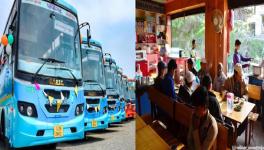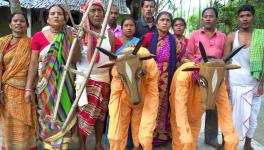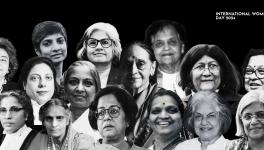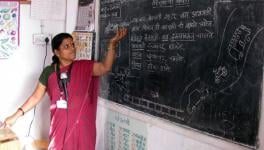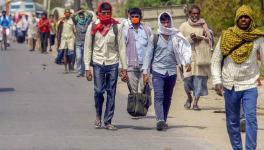Why OBCs Are Falling Through the Cracks
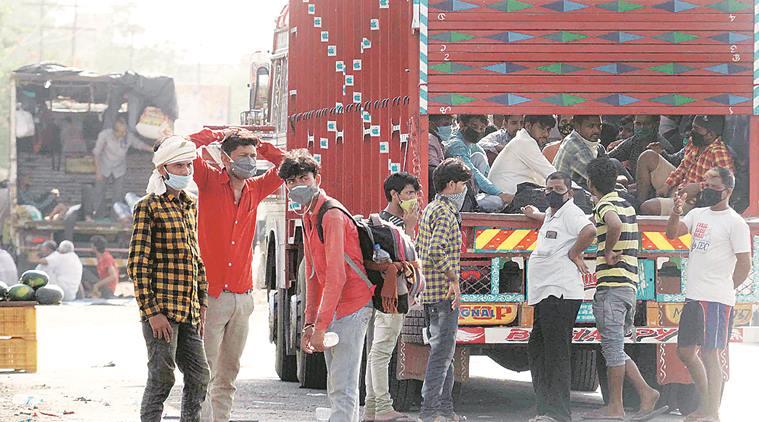
A recent survey by the government of Madhya Pradesh has concluded that the largest segment of migrant workers returning to their villages were the OBCs [Other Backward Classes], who made up 38.4% of the total migrants. It is also a fact that alongside the OBCs the rest of the migrants are constituted by the SCs, STs who made up 60% and the Muslims. In fact, much of the current migrant crisis is directly related to caste-based discrimination, especially in the way they have been treated by the current political dispensation.
Even as we emphasise the commonality of discrimination faced by all the castes at the “lower” end of the caste ladder, it is equally important to point to the specificities of each of these components in order to create concrete narratives to oppose the systemic discrimination and exclusion that has been put in place. Within the larger narrative, it looks like the lower end of the OBCs are at the receiving end, but also without an oppositional narrative and there are concrete social and historical reasons for this that need to be explored.
There are certain distinct challenges that the OBCs face which need to be differentiated from those the Dalits face. In fact, much of the OBC social organisation gained momentum as an integral part of anti-caste movement led by the Dalits. Even OBC intellectuals, though very small in number, get noticed more as “Dalit intellectuals”. While this may not be bad in itself, as it could have led to a unity between the Dalits and the OBCs, but what happened instead seems to be that the socially/politically lower strata of the OBCs have fallen through the cracks—neither has Bahujan politics led them to a robust unity with Dalits nor has it managed to garner the benefits that are due to them. [As a legal/constitutional category OBC refers to backward classes, although the inclusion and exclusion into the category is done on the basis of caste.]
Historically, it is the Congress party that mobilised and consolidated support among the upper castes and Dalits, and the Muslims and OBCs were not considered a separate social or political category until the Mandal Commission’s report was implemented in 1990. Even after its implementation, OBCs could not consolidate as a block, in the same way that Dalits and Muslims could. “OBC” still remains more of a legal/constitutional or political category and has not taken the shape of a social group. There is no evidence of OBCs voting in a consolidated manner and they remain divided.
It is only with the resurgence of the BJP that “OBCs” began to politically consolidate, but even this happened without a clear social agenda aiming for their social mobility. This could well be because the very basis of OBC identity remains unclear in social terms, it is not clear as to what can rally them into a consolidated block.
Dalits, in spite of being internally heterogeneous and divided into sub-castes, emerged as a unified block in terms of oppositional mobilisation and voting patterns during elections, rallying around the philosophy and praxis of Dr. Bhimrao Ambedkar as a consolidating figure. While Dalits were divided socially as sub-castes they belonged to same class and all of the sub-castes were marked by the practice of untouchability. As against the stigma of untouchability, “backwardness” remains relatively vague. It is not clear if backwardness translates into social stigma, even if it is clear that it leads to exclusion and discrimination on many fronts. The fungibility of the category of backwardness got exacerbated with many dominant castes such as the Jats, the Patidars and others claiming the status of being backward, especially in relation to access to education and jobs in the formal economy.
Many of the intermediary castes in the Varna system belong to the same category, of being marked as Shudras, but politically and economically many of these castes are dominant. The OBC movement has remained unable to claim a distinct social position based on their status in the Varna hierarchy. Further, unlike the Dalits, thanks to Ambedkar who held Hinduism as squarely responsible for the plight of the Dalits, OBC leaders never offered any such direct opposition to accepting a Hindu identity for themselves. The OBC leaders worked within the fold of Hinduism, following the logic of Sanskritisation, with many castes otherwise categorised as backward claiming to belong to the Kshastriya or, more recently, Vaishya categories.
Most of the caste groups categorised as OBCs are agrarian in terms of occupation. They are essentially involved in caste-based occupations and mostly inhabit rural hinterlands. However, though there has been a sustained agrarian crisis, this was not projected as something that has led primarily to the suffering of the lower-end OBCs. Instead, the former farmer’s movement got converted into “OBC politics”, which demanded mobility into peri-urban and urban areas.
Much of the earlier framing of the OBC issue by thinkers such as Jyothiba Phule was around the axis of mental-manual divide. The critique against Brahmanism was that it was exploitative in that they prioritises exclusively mental-priestly functions that were unproductive, while the OBCs represented productive labour. Today, OBC politics cannot claim its agrarian location, nor eulogise its productive labour as it rightly does not want to be restricted to caste-based occupations. It therefore lacks a social or cultural narrative. Had OBC politics been linked to the agrarian crisis or the ongoing migrant crisis it could have gained new momentum. But it remains distanced from such issues as they do not reflect the aspirational content of dominant OBC groups.
Today more than before there is a need for the OBCs to consolidate into a new historical block to highlight the adverse impact of neo-liberal reforms that are evident in the sustained agrarian crisis and in the ongoing migrant crisis. This cannot happen purely through a cultural-identitarian frame, even though that remains important to highlight how caste-based discrimination operates. There is a need for a new legitimising discourse for OBCs to re-emerge from the historical cracks they seem to have fallen through. This discourse also, in today’s context, cannot be limited to exclusive caste groups.
The caste groups that have been clubbed together under the Other Backward Classes category can gain new leadership when they begin to articulate concerns regarding the current model of development and growth, even as they highlight the severity of its impact on the lower end of the OBCs.
In such a combination of class and caste the OBCs can emerge as new leaders, even with a possibility of an exclusive political party, if they take the initiative to raise issues of free education for all, free medical and health facilities for all and basic income schemes to arrest rural distress. Emphasising these issues cannot be seen as watering down the caste content but the challenge is to mobilise the OBCs as owning those issues that concern them the most.
The author is associate professor, Centre for Political Studies, Jawaharlal Nehru University. The views are personal.
Get the latest reports & analysis with people's perspective on Protests, movements & deep analytical videos, discussions of the current affairs in your Telegram app. Subscribe to NewsClick's Telegram channel & get Real-Time updates on stories, as they get published on our website.













